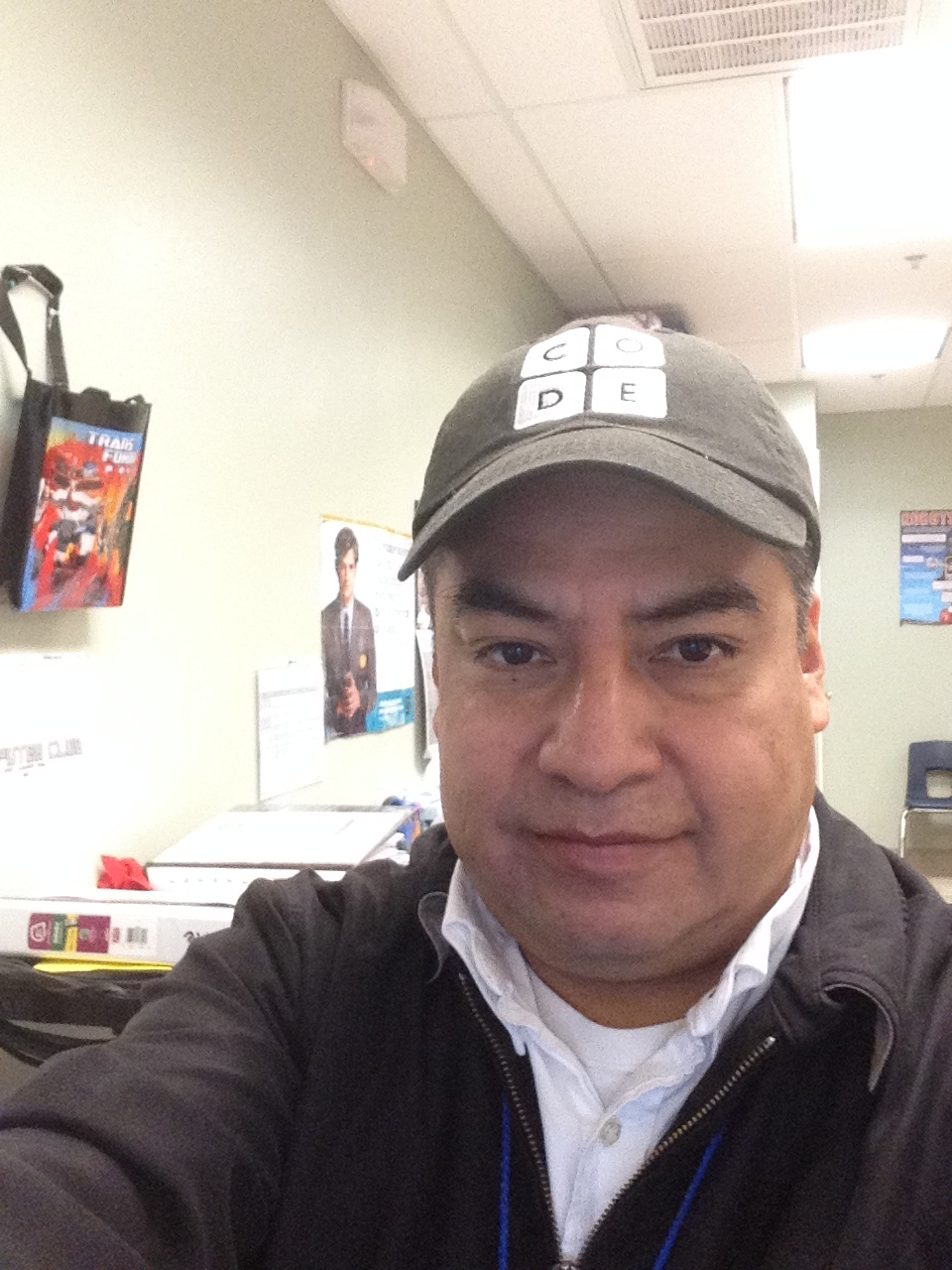

AMPing Up Instructional Design: Addressing Accessibility, Meaning & Purpose |
Explore and create : Creation lab
Javier Aguilar Ania Figueroa Lindsay Foster Anne Truger
Every learner every day — one of the greatest challenges for educators is ensuring that all learners' needs are met. Creating engaging instructional design with purposeful thought toward diversity, inclusion and equity is essential. Participants will actively discuss instructional design principles and apply accessibility, meaning and purpose to various learning situations.
| Audience: | Curriculum/district specialists, Teachers, Teacher education/higher ed faculty |
| Skill level: | Beginner |
| Attendee devices: | Devices useful |
| Attendee device specification: | Smartphone: Android, iOS, Windows Laptop: Chromebook, Mac, PC Tablet: Android, iOS, Windows |
| Participant accounts, software and other materials: | None required |
| Topic: | Instructional design & delivery |
| Grade level: | PK-12 |
| Subject area: | ELL, Special education |
| ISTE Standards: | For Education Leaders: Visionary Planner
Designer
|
Challenge: There are unknown variables so instructional design needs to meet as many universal design principles to meet those learner’s needs.
Challenge: Asset-based perspectives need to be leveraged and focused so that the learner’s gaps may be addressed and closed.
Accessibility tools may be include but not limited to:
Coolors.co
Canva
Canvas (LMS)
Google Workspace for EDU
Immersive Reader
Read & Write extension
Remove.bg
Schoology (LMS)
Seesaw
Models employed will include
Universal Design for Learning (UDL) including:
Equitable use
Flexibility in use
Simple and intuitive use
Perceptible information
Tolerance for error
Low physical effort
Size and space for approach and use
Sheltered Instruction Observation Protocols (SIOP) including:
Lesson preparation
Building background
Comprehensible input
Strategies
Interaction
Practice and application
Lesson delivery
Review and assessment
Affective filter
Activities will include cooperative learning structures, round robin exploration, and gallery walk of situations, examples and practice/application.
Participant/attendee will share and build within a collaborative library such as Padlet, Wakelet or Jamboard to build a resource exemplar database.
5 minutes Greeting and participant “get to know the audience” activity
5 minutes Facilitator introductions
12 minutes Principles of design High Level Overview
3-4 minutes Color theory and branding
3-4 minutes Graphics, images, and ADA compliance
3-4 minutes Language acquisition theory and practice
8 minutes Exemplars with audience engagement
2 minutes Whole Group activity
6 minutes Small Group/Partner activity
45 minutes Round robin exploration and gallery walk of situations, examples, practice/application
6-8 minutes Wrap-up
7-8 minutes Question & Answer
Brown, A., & Green, T. D. (2020). The essentials of instructional design: Connecting fundamental principles with process and practice. Routledge.
Center for Applied Linguistics - SIOP https://www.cal.org/
Grant, K., & Pérez Luis. (2018). Dive into UDL: immersive practices to develop expert learners. International Society for Technology in Education.
Isman, A., Dabaj, F., Altinay, Z., & Altinay, F. (2013, August). Effects of instructional design on learning. Retrieved September 26, 2021, from https://files.eric.ed.gov/fulltext/ED496571.pdf.
Kolb, L. (2017). Learning first, technology second: the educator's guide to designing authentic lessons. International Society for Technology in Education.
Kolb, L. (2020). Learning first, technology second in practice: new strategies, research and tools for student success. International Society for Technology in Education.
Martin, F. (2011) Instructional Design and the Importance of Instructional Alignment, Community College Journal of Research and Practice, 35:12, 955-972, DOI: 10.1080/10668920802466483
Novak, K. (Ed.). (2018, March 16). Why UDL matters for English language learners. Language Magazine. Retrieved September 26, 2021, from https://www.languagemagazine.com/2018/03/09/why-udl-matters-for-english-language-learners/

Hello my name is Javier Aguilar, I am in my seventh year of working at East Fort Worth Montessori Academy as a Technology Applications / Computer Science teacher & Robotics Coach. I am a fan of the LEGOS, Robotics, MinecraftEDU, Roblox and Fortnite. I love listening to music when we are in class. I am making positive changes in education to better equip students for the future. @efwmaschool @dfwcsta #LEGOEducation #networking #learning #teamwork #equity #diversity #confidence #code #CSforGood #creativity #CSforALL #EveryCanCode #ForTheLoveOfCoding #SpheroHero #BeyondCode 👍🏼🤖

Ania Figueroa, Ed.S., Director of Language Services in CCSD21 Wheeling, Illinois, has over 17 years of experience in the PreK-8th grade setting. Mrs. Figueroa has served diverse learners in various roles from teacher assistant to district level administrator. She has supported students, teachers, administrators, families, and community leaders to understand and engage in meaningful learning experiences addressing the diverse needs of all learners. Mrs. Figueroa is a DEN Star educator, IAMME member, IALAS member, former board advisor for the Midwest Principal Center, and has presented at the Illinois Computing Educators (ICE) conference 2018 & 2017 and WIDA national conference 2016.

Lindsay Foster has two decades of educational experience as an elementary classroom educator, a technology applications instructor, and as an instructional technology coach. As an Instructional Technology Coordinator, Mrs. Foster helps students & educators alike build meaningful & engaging learning experiences using technology across the curriculum. Mrs. Foster is a Google Certified Trainer, a LEGO Education US Master Educator, Book Creator Ambassador, and BreakoutEDU Trainer. Mrs. Foster loves to showcase student and educator experiences in the classroom, on the campus and across her district and state, and her speaking engagements have included ISTE, TCEA, MACUL, NCTIES, TCEA ETC, TCCA, TiA, and TXGoo.

Anne Truger is an educational technology consultant with over 20 years of conference presentation experience. Anne dreams of a world where technology integration becomes truly seamless and invisible. Currently Anne works as a Instructional Technology Coach for TrueNorth 804 Educational Cooperative. In her free time she provides Google Training for private clients. She is a Google for Education Certified Trainer and a Google Certified Innovator. Anne has presented at APC 2018-2021, ISTE 2001-2021 and at many other local conferences. She enjoys presenting and sharing her lifelong love of learning and technology passion with others.